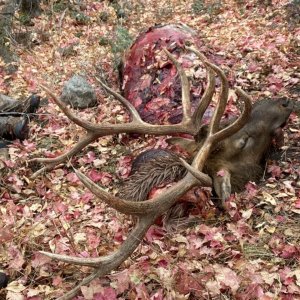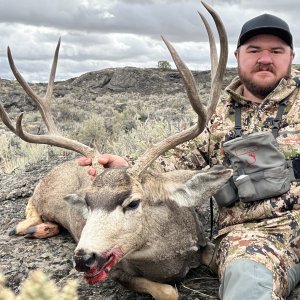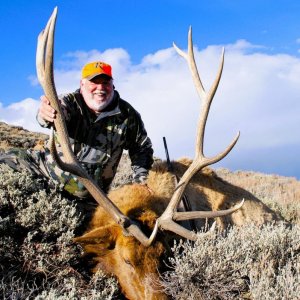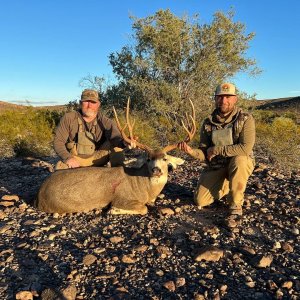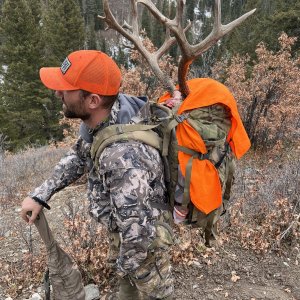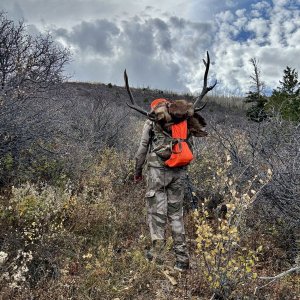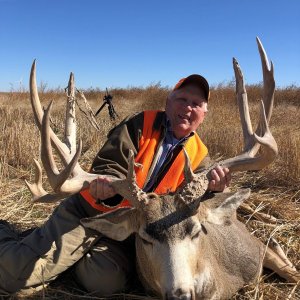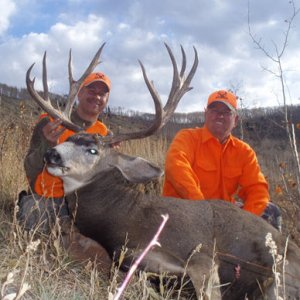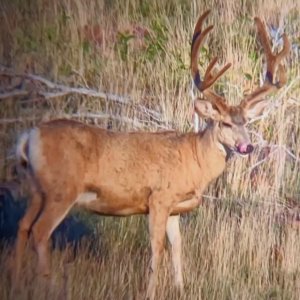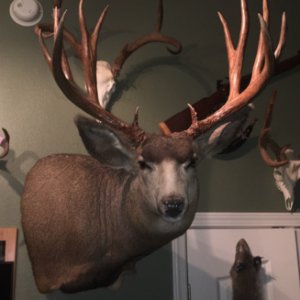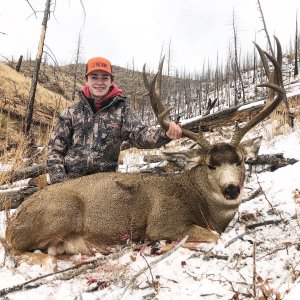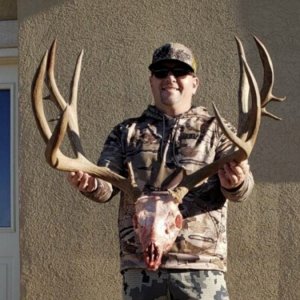PleaseDear
Long Time Member
- Messages
- 10,433
Posted: Sunday, November 8, 2009 12:00 am
HESPERUS, Colo. (AP) -- An elk reserve on state-owned property in
southwest Colorado is getting criticism from people who say the Elk
Research Institute is more concerned with attracting wealthy hunters
than saving elk from chronic wasting disease.
The nonprofit research center on about 1,500 acres in Hesperus in La
Plata County has a mission of breeding elk resistant to chronic wasting
disease. The breeding research center also sells hunting trips. Hunters
can pay thousands to kill mature bulls, many with enormous racks that
have grown because of nutritional supplements.
The land belongs to Colorado State University. But some critics, both
scientists and fellow hunters, say it's time for the university to
reconsider the ERI.
The institute's purpose is to breed a "superior strain of elk" resistant
to chronic wasting disease. It was started in 2002 by Barry Dyar, a
wildlife enthusiast who runs a separate private elk-breeding business at
his Mad Hatter Ranch.
Some are starting to question the basic premise of Dyar's institute.
Critics say it appears impossible to breed elk resistant to the fatal
neurological disease, and that Dyar's operation appears more interested
in raising elk that look good mounted above a fireplace.
Matt Dunfee, director of the Chronic Wasting Disease Alliance, told the
Durango Herald that the work being done at the Institute is "arbitrary."
And Mike Miller, a senior wildlife veterinarian for the Colorado
Division of Wildlife and a national expert on chronic wasting disease,
told the newspaper that scientists don't know if it's possible to breed
disease-resistant elk.
The criticism has Dyar defending the work he's doing.
"You might not call it research," he told the newspaper. "But it
absolutely is."
Even some hunters have concerns. The ERI has a business called "Western
Elk Hunting," with trips that promise hunters "some of the largest bull
elk in North America" and pristine habitat. Dyar calls them "harvest
hunts" and "research captures."
Some hunters say the ERI gives hunters an improper advantage because the
elk are fenced in and have grown accustomed to people. The ERI also puts
on nonfatal "darted hunts," which some consider unhealthy for the
animals.
Steve Blackwell, founder and director of the Four Corners chapter of
Safari Club International, said his hunting group has withdrawn support
for the ERI.
"It's for people who really don't hunt ethically," Blackwell said.
The ERI says it is in compliance with its charter and is doing
worthwhile work trying to breed healthier elk.
Former state Sen. Jim Isgar, who helped Dyar acquire the lease for the
land, sticks with his initial support.
"I still think it's a worthwhile project. I still stand by that," Isgar
said.
Kinda sad----
Robb
HESPERUS, Colo. (AP) -- An elk reserve on state-owned property in
southwest Colorado is getting criticism from people who say the Elk
Research Institute is more concerned with attracting wealthy hunters
than saving elk from chronic wasting disease.
The nonprofit research center on about 1,500 acres in Hesperus in La
Plata County has a mission of breeding elk resistant to chronic wasting
disease. The breeding research center also sells hunting trips. Hunters
can pay thousands to kill mature bulls, many with enormous racks that
have grown because of nutritional supplements.
The land belongs to Colorado State University. But some critics, both
scientists and fellow hunters, say it's time for the university to
reconsider the ERI.
The institute's purpose is to breed a "superior strain of elk" resistant
to chronic wasting disease. It was started in 2002 by Barry Dyar, a
wildlife enthusiast who runs a separate private elk-breeding business at
his Mad Hatter Ranch.
Some are starting to question the basic premise of Dyar's institute.
Critics say it appears impossible to breed elk resistant to the fatal
neurological disease, and that Dyar's operation appears more interested
in raising elk that look good mounted above a fireplace.
Matt Dunfee, director of the Chronic Wasting Disease Alliance, told the
Durango Herald that the work being done at the Institute is "arbitrary."
And Mike Miller, a senior wildlife veterinarian for the Colorado
Division of Wildlife and a national expert on chronic wasting disease,
told the newspaper that scientists don't know if it's possible to breed
disease-resistant elk.
The criticism has Dyar defending the work he's doing.
"You might not call it research," he told the newspaper. "But it
absolutely is."
Even some hunters have concerns. The ERI has a business called "Western
Elk Hunting," with trips that promise hunters "some of the largest bull
elk in North America" and pristine habitat. Dyar calls them "harvest
hunts" and "research captures."
Some hunters say the ERI gives hunters an improper advantage because the
elk are fenced in and have grown accustomed to people. The ERI also puts
on nonfatal "darted hunts," which some consider unhealthy for the
animals.
Steve Blackwell, founder and director of the Four Corners chapter of
Safari Club International, said his hunting group has withdrawn support
for the ERI.
"It's for people who really don't hunt ethically," Blackwell said.
The ERI says it is in compliance with its charter and is doing
worthwhile work trying to breed healthier elk.
Former state Sen. Jim Isgar, who helped Dyar acquire the lease for the
land, sticks with his initial support.
"I still think it's a worthwhile project. I still stand by that," Isgar
said.
Kinda sad----
Robb

